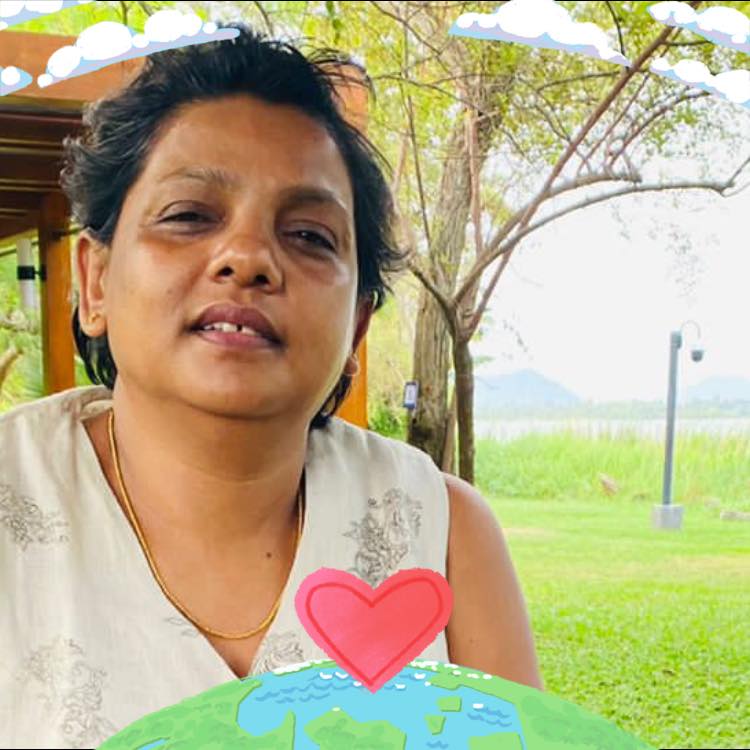Patichcha Samuppadaya
Theory of Everything and Anything

Namo thassa bhagawatho arahatho samma sambudhdhassa.
Patichcha samuppadhaya.
After spending the first week of enlightenment, Lord Buddha meditated on Paticcha Samuppada from beginning to end (in reverse) and beginning to end (in reverse) on the seventh day night. It is also known as Buddhist Causality. Paticcha Samuppada explains the origin and disappearance of suffering in Buddhist analysis.
“Yo patichchasamuppadang passati so dhamman passati”.
“Yo dhamman passati so patichchasamuppadang passati”
Whoever sees Paticcha Samuppada with wisdom, he sees Sri Saddharma with wisdom. One who sees Sri Saddharma wisely, he sees Paticcha Samuppada wisely.
“Imasming sati idang hoti”
When this is, this will be
“Imassuppada idang uppajjati”
this is born out of the birth of this
“Imasming asati idang na hoti”
When this is not there is not this
“Imassa narodha idang nirujjati”
This is lost by the loss of this.
At the Bodhi root, the Lord Buddha meditated on how suffering gradually arises and how it disappears. He said that suffering arises due to the connection of Avijja, Sankhara, Vinghana, Namarupa, Salayatana, Phassa, wedanaa, Tanha, Upadana, Bhava, Jati, Jara-Marana, soka, parideva, dhukka dhomanassa, upasaya.
Avijja - Ignorance is the absence of clear knowledge of the Four Noble Truths. Due to avijjava, the cause and effect relationship formed in Patichva Samuppada is Patichva Samuppanna Dhammas. If they are,
Sanskara – Kaya Sanskara (breathing), Vachi Sanskara (Vitakka Vichara) and Chitta Sanskara (signal pain) and Sanskara – Punjabhi Sanskara and Apunjabhi sanskara can also be seen in some places.
Vinghana - Consciousness – the mind that arises when a purpose comes to an internal entity such as eye, ear, nose, tongue, body, mind; Vijnana means to know specifically
Nama Rupa – Nama Dhammas (Vedana, Sigha, Chetana, Phassa, Manasikara) and the image made up of the four great demons; This is the building block of all institutions
Salayatana – The six senses of the eye, ear, nose, tongue, body, mind, are called institutions because they are arranged to create existence; These six spiritual (inner) institutions are; They are external entities called images, sounds, smells, tests , touch objects (objects of the mind; dhamma).
Passo - touch – when an organization has a purpose, the mind that arises is to unite with it; Then caused by the purpose
Whether there is happiness, sadness, or mediocrity, there is a sense of it; At that time there will be pleasures, sorrows and non-suffering (adukkhamasukha).
If there is any suffering, it recognizes itself; That is, signs are born
When something is recognized, intentions arise about it; The same intention of the ignorant person is set to reward
Touching (phassa) in Buddhism is not used in the Sinhala language as pahasa
Wedana -Pain – the experience of pleasure, pain and non-suffering (Adukkhamasukha) caused by touch.
Thanha - Covetousness – thinking about pleasures, pains and sufferings unconsciously (with ionismanasikara) causes the mind to cling to images, sounds, smells, tastes, pleasures and objects even if there is some inspiration (Nandiraga); This is greed. That is Kama Tanha, Bhava Tanha and Vibhaya Tanha etc.
Upadana – one who greedily seeks goals and appreciates them when he gets them (Vinghana) At that time the consciousness is still associating the same goals; Therefore, he willingly clings to the five senses of form, pain, sign, sankhara, and consciousness (chandaraga); To be attached to evil like this is upadana.
Bhavaya - When intentions are brought down from the bound mind, Karma will be arranged in such a way as to give rewards for the enjoyment (Venghana) of a certain object (Kama, Rupa, Arupa). This is being
Jati – The birth of sathwayaa. (i.e. one who has not become completely free from greed) at the time of death is the birth in accordance with the state that is formed. In accordance with the rewarded karma, the descent of the five elements (skandhaa nam patibawo) and the attainment of the six entities (Ayathanang Patilabho) occur with the nation.
Jara-marana – the born creature gradually decays and dies; That is the group of all sufferings.
“Soka Parideva Dukkha Domanassa Upasaya sambhavanti evametassa kevalassa dukkha Skandhassa Samudayo Hoti”
" Sankiththena panchs upadanaskandha dhukka"
Sadhu sadhu sadhu . 🙏🙏🙏
